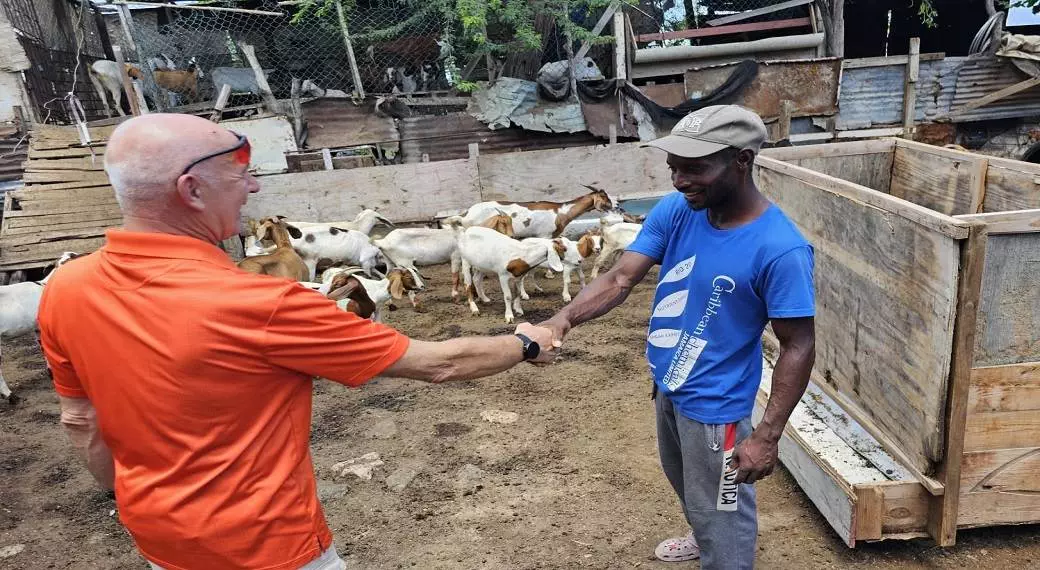Top Stories Tamfitronics

Lead researcher for the Mitigating Effects of Heat Stress in Caribbean Animal Production Project, Langston University in the United States (US), Dr Ryszard Puchala, greets St Thomas farmer, Sheldon Brown. The goat farmer is among nine small ruminant farmers across the country who are benefiting from the project, which is being facilitated through partnership with the Rural Agricultural Development Authority (RADA).
NEWYou can now listen to Loop News articles!

Nine small ruminant farmers across the country are benefiting from a project facilitated through a partnership between the Rural Agricultural Development Authority (RADA) and Langston University in Oklahoma, United States.
The Mitigating Effects of Heat Stress in Caribbean Animal Production Project, valued at US$30,000, began in May.
The initiative also involves collaboration with the College of Agriculture, Science and Education (CASE).
Lead researcher from Langston University, Dr Ryszard Puchala, said it is the fourth project being facilitated through a partnership with RADA.
“This project [is] funded by the United States Department of Agriculture (USDA) Center of Excellence, Global Food Security and Defense.
“We want to target especially small farmers and specifically small ruminant farmers,” he noted.
Dr Puchala said the undertaking will benefit farmers from the parishes of St Thomas, St Catherine, Clarendon, St Elizabeth, St James and St Ann
“We’re setting up the equipment and trying to figure out the most appropriate intervention for those parts. The aim is also to instal heat index monitors for the animals as well as installing just regular ambient temperature and relative humidity meters,” he informed.
Dr. Puchala said that farmers will be provided with digital thermometers and thermal imaging cameras, which are critical in managing heat stress in animals.
A heat-stressed goat will sweat, have open-mouth pant, and experience an increase in respiration rate.
Dr Puchala said the devices quickly evaluate whether an animal is prone to heat stress.
“Thermal imaging is a new technology where we analyse the temperature of the whole body. It uploads the data to the cloud and there is a special programme that analyses the heat distribution in the animal’s body.
“When you take a picture of the animal, it shows you thermal imaging and it shows you the lighter areas on the animal to show where heat is being emitted from,” he pointed out.
The project was initially slated to run for a year; however, Dr Puchala said: “we have gotten the blessing for two years”.








